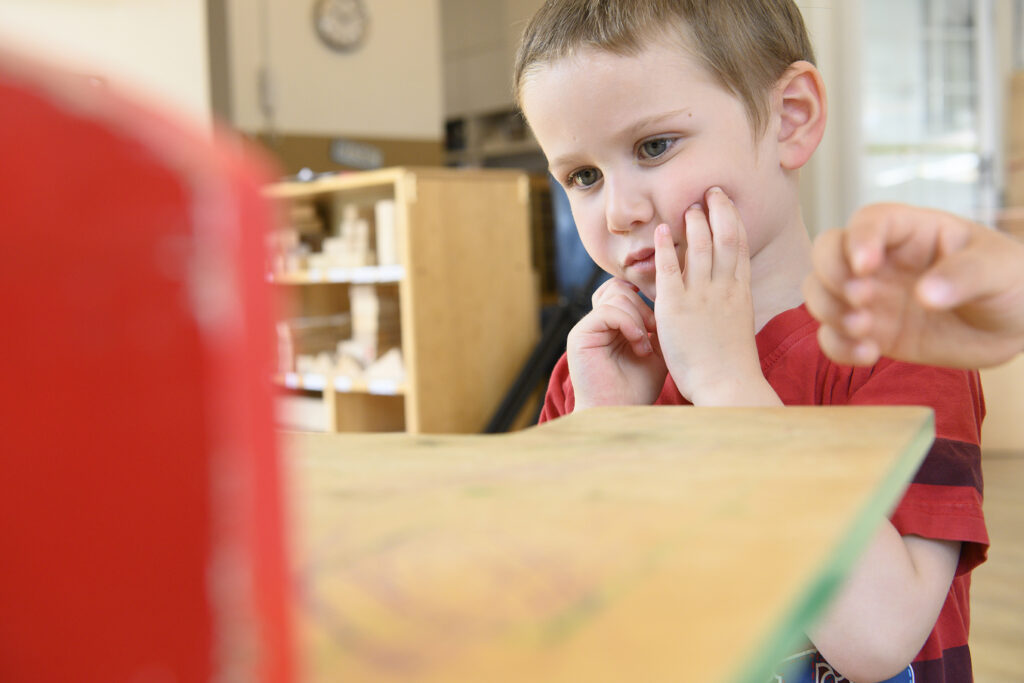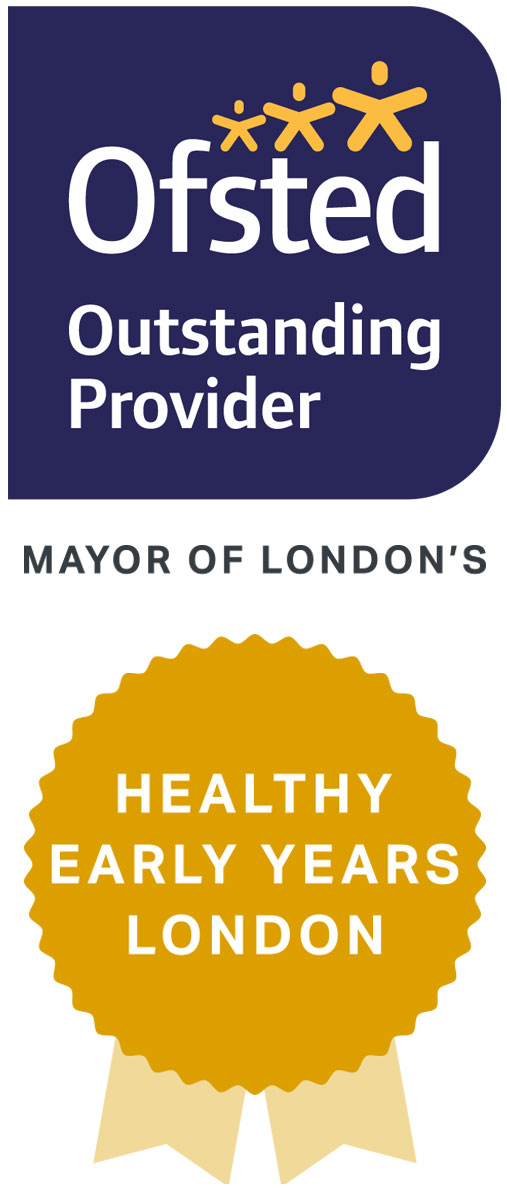Tuffkid is a Froebel based nursery and we follow the Early Years Foundation Stage (EYFS) curriculum integrated with Jewish learning. Through play in a secure environment, with effective adult support, children can:
- Explore, develop and represent learning experiences that help them make sense of the world
- Practice and build up ideas, concepts and skills
- Learn how to control impulses and understand the need for rules
- Be alone, be alongside others or co-operate as they talk or rehearse their feelings
- Take risks and make mistakes
- Think creatively and imaginatively
- Communicate with others as they investigate or solve problems.
The curriculum is developmentally appropriate for each child and incorporates the frameworks of schema theory and Laever’s signs of involvement and wellbeing.
Each child has an individually planned curriculum. Children are allowed to experiment and focus on activities that interest them.
Each child is encouraged to develop at their own pace and pursue their own interests.

TUFFKID NURSERY AND FREIDRICH FROEBEL
Friedrich Froebel was an 18th/19th century educator and thinker who is credited with creating the concept of kindergarten.
WHY FROEBEL, WHY NOW?
As Tuffkid Nursery aims to be at the forefront of research in Early Years’ Education, you may wonder why we are interested in the ideas of someone who formed their pedagogical concepts more than 200 years ago. The fact is, there has been a resurgence of interest in Froebel’s ideas and principles as they still constitute excellent practice in modern times.
Froebel had a difficult childhood and spent much of his time outdoors. He found the natural world a calming, engaging place of endless fascination. His love of nature led him to believe that it was the best place for children to be, to promote optimum outcomes in their learning and development. He created the idea of kindergarten – meaning ‘children’s garden’ – where children could happily explore at their own pace. All the activities in his kindergartens were designed to make young children think about and understand their role within society. They would learn life skills such as gardening and combine this with philanthropy; for example, growing their own vegetables and then donating them to the poor in their community.
Froebel was one of the first to understand and communicate the idea of children as active learners – a principle that forms the foundation of early years’ education today. He believed that human life unfolds naturally from infancy through childhood to adulthood. His idea that learning should start where the learner is, not where the teacher thinks they should be, is crucial. For Froebel, life was the most important foundation of experience and, unless the teaching was related to life, school had no meaning for children.
In Froebel’s kindergarten adults and children worked together and children were involved in the planning of activities. This principle highlights a relationship based on equity and mutual respect which underpins Froebel’s educational philosophy. Within this partnership children were given agency and were able to develop and flourish. Froebel saw the role of adults as extending children’s play, valuing child-initiated and child-directed activity. Froebel provides us with a useful definition of play:
‘Play is the highest expression of human development in childhood for it alone is the free expression of what is in the child’s soul’.
A fundamental concept of Froebelian ideology is ‘freedom with guidance’. Through observation, sensitive intervention, open-ended questions and the most magical phrase ‘I wonder’, an experienced practitioner can help children learn to think for themselves, rise to their own challenges and discover their own solutions.
Many of Froebel’s ideas resonate today as they are considered effective tools in building resilience and self-esteem in children, helping them become tomorrow’s creative and benevolent thinkers and leaders. In Froebel’s kindergarten children were taught to understand and care about others and their environment; to make a positive impact and to take pride in the contributions they can make to their families, communities and wider society.
Froebel’s Guiding Principles as defined by Tina Bruce:
- Childhood is seen as valid in itself, as part of life and not simply as preparation for adulthood. Thus, education is seen similarly as something of the present and not just preparation and training for later.
- The whole child is considered to be important. Health, physical and mental, is emphasised, as well as the importance of feelings, thinking and spiritual aspects.
- Learning is not compartmentalised, as everything links.
- Intrinsic motivation, resulting in child-initiated, self-directed activity, is valued.
- Self-discipline is valued.
- There are especially receptive periods of learning at different stages of development.
- What children can do (rather than what they cannot do) is the starting point in the child’s education.
- There Is an inner symbolic life in the child that emerges especially under favourable conditions.
- The people (both adults and children) with whom the child interacts are of central importance.
- The child’s education is seen as an interaction between the child and the environment in which the child finds her/himself – including, in particular, other people and knowledge itself.
(Bruce, 1987; Bruce, 2020)
FROEBEL TRAINING
Tuffkid has undertaken in-depth training in Froebelian principles and practice. Our staff are privileged to have been tutored on site by top experts on Froebel. These include Dr Stella Louis, Tricia Johnson, Julia Manning-Morton and Professor Tina Bruce, who has published a comprehensive work about the re-emergence of Froebel’s philosophy and its application within modern early years’ education. Since the beginning of our training, we have aimed to put theory into practice and to combine it with Tuffkid’s Jewish ethos, in particular Froebel’s idea of unity and one-ness, along with care for others and the environment.
Read more about Froebel’s theories and how to apply them in practice to support children’s learning in our modern world.


